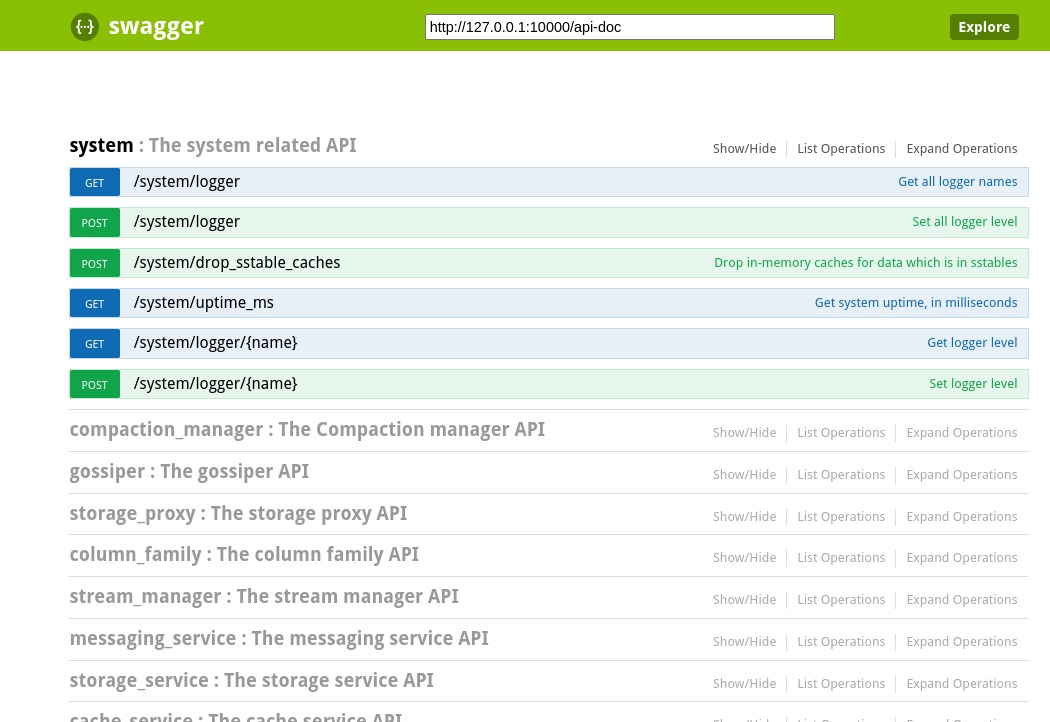Was this page helpful?
Caution
You're viewing documentation for a previous version. Switch to the latest stable version.
Admin REST API¶
ScyllaDB exposes a REST API to retrieve administrative information from a node and execute administrative operations. For example, it allows you to check or update configuration, retrieve cluster-level information, and more.
The nodetool CLI tool uses the REST API to interact with the ScyllaDB process.
You can interact with the REST API directly using curl, ScyllaDB’s CLI for REST API, or the Swagger UI.
Swagger UI¶
Warning
Do not expose the REST API externally for production systems.
The following example is only for demonstration, as it exposes the REST API externally and will allow external access to administration-level information and operations on your cluster. The API is by default bound to an internal IP (127.0.0.1), blocked for external connections.
You can interact with the REST API using the Swagger UI at your-ip:10000/ui.
The following example shows using the Swagger UI with Docker.
Run:
docker run --name some-scylla -p 10000:10000 -d scylladb/scylla:latest --api-address 0.0.0.0
Go to http://localhost:10000/ui/.

CLI for REST API¶
ScyllaDB ships with scylla-api-client, a lightweight tool that provides a command-line interface
for the ScyllaDB API. The tool allows you to:
List the API functions with their parameters and print detailed help for each function.
Invoke the API commands using the command line.
When invoking a function, scylla-api-client performs basic validation of the function arguments and
prints the result to the standard output. You can use commonly available command line utilities
to print the results in the JSON format.
To avoid errors, you should prefer scylla-api-client over curl and similar HTTP tools for interacting
with the ScyllaDB REST API.
Usage¶
Run scylla-api-client --help for information about all the available options.
Examples:
scylla-api-client --list-modules- Shows all the API modules.scylla-api-client --list-module-commands system- Shows all the API commands for thesystemmodule.scylla-api-client system uptime_ms- Gets the system uptime (in milliseconds).scylla-api-client system log POST --message "hello world" --level warn- Writes the “hello world” message to the ScyllaDB log using the “warn” logging level.
